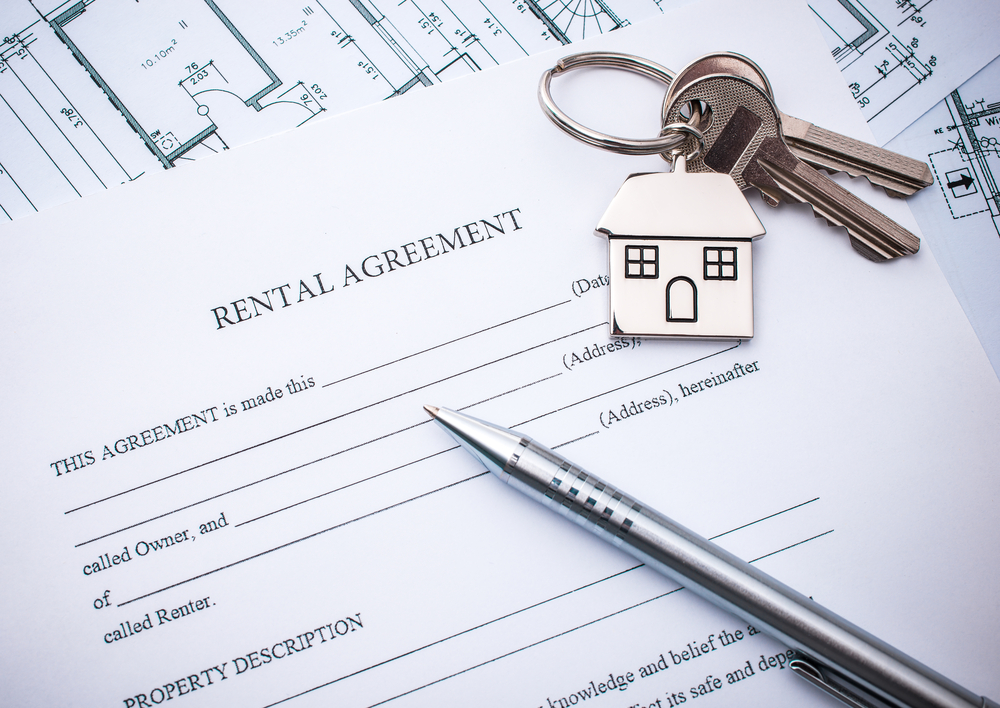Moving out on your own is a huge milestone. It is not only a memorable step into adulthood, but it also comes with freedom and independence that is hard to find while living under someone else’s roof.
But while moving out for the first time is exciting, it also requires a lot of planning. Luckily, we have you covered!
Use the simple 9-point checklist below to start researching and planning your first move:
1. Know How Much You Need
Knowing how much you need to save before moving out is essential. It will help you make a budget and assess if your desired destination is affordable.
Keep in mind that the cost of living can vastly vary from state-to-state and even between cities.
If you are curious about the cost of living where you’re headed, there are websites that will give you an idea of the average for everything – from food staples to apartment rentals. Check for comparison tools that allow you to compare two different cities and states.
2. Make a Budget
Now that you have a rough idea of your cost of living, make a moving out budget. This should include significant expenses like rent, as well as smaller purchases like hygiene products.
Remember that the small stuff adds up, so when making your budget be realistic about your spending habits and include everything you can think of.
Checking your bank account statement or credit card bill can help you get an idea of where you’re spending money.
A few key items to include in your budget:
- Debts: Car payments, student loans, and credit card debt.
- Rent: Don’t just account for monthly rent, but the deposit as well. Most places require first and last, as well as a damage deposit. To make sure you aren’t scrambling monthly to pay your bills, you should ideally save a few months’ rent before moving.
- Utilities: Account for utility costs. And don’t forget to add your phone bill.
- Moving: Add in your one-time moving costs. These may include hired help, truck rental, moving supplies, fuel, pizza for friends that lend a hand, etc.
- Food: Food budgeting can be tough to know when you’ve never lived on your own, but a trial run can help. Before moving out, buy all your groceries for a week and make your own meals to get an approximation of what you’ll be spending.
- Entertainment: This may include subscriptions to services like Netflix, games, outings to places like restaurants, etc. If you need to cut expenses, this is the first place to start. But be realistic with what you spend so you can make an accurate budget.
- Hygiene: Include everything from haircuts to body wash. It will be a series of smaller expenses, but it often equals more than you’d expect.
3. Find a Rental

With the exception of the few that have saved enough to buy a home, moving out of your parents’ house usually means moving into a dorm or finding a rental.
When looking for a place be sure to:
- Check Online: Online marketplaces and classifieds tend to be the best places to find rentals. Some cities even have designated websites that list available properties.
- Consider Roommates: Find a roommate or two to split expenses. This is often a more feasible option in more expensive areas and it is an excellent way to meet new people if you are new in town.
- Do a Walkthrough: You should always see a place in person before you commit since pictures can be deceiving and it will give you the best feel for the area. Don’t be afraid to open cupboards, look in closets, and check every nook and cranny.
- Sign a Contract: A contract will protect you as a tenant if anything goes south. Just make sure you read everything carefully and ask any questions before signing. Don’t sign if something doesn’t sit right.
4. Account for the Weather
Weather is seldom discussed for planning a move, but it can affect both your wardrobe and budget.
For example, if you live in a hot climate, you may be paying more in hydro due to air conditioning.
Moving somewhere snowy? Winter tires, a good pair of boots, and a heavy coat are a must.
Do an internet search to figure out weather-specific data for where you’re moving. You’ll be able to find out the average temperature, the average amount of rain, when the first and last snowfall usually is, etc.
5. Book What You Need
- Movers: For hiring professional movers, you will want to get at least 3 quotes before making your final decision. Going the DIY route? If you are hoping for a few friends to pitch in, give them as much notice as possible.
- Elevator: Another thing you may have to book is the elevator in your building. Do so sooner than later, then confirm the booking a couple days before your move-in date.
- Utilities: From internet installation to hydro, make sure to set up all your accounts and schedule any installs.
6. Gather Necessities
Your first place doesn’t have to look magazine-worthy, but a few staples should be acquired to make it functional.
Remember that these expenses can really add up, so get what you actually need first before diving into decor or other luxuries.
These necessities include:
- Appliances: Get a fridge and stove if your new home doesn’t include them. A microwave is especially helpful for quick meals.
- Furniture: A bed, sofa, trash can, dresser, and a place to eat are the bare minimum. If you are on a tight budget, look for used furniture from a thrift store or online marketplaces.
- Kitchen Accessories: Pots, pans, utensils, a spatula, a few containers for leftovers, and a dishware set are a good place to start. Also, grab a few cleaning products and a broom or vacuum to keep your new home clean.
- Electronics: This may include a couple power bars and lightbulbs. Installing LED lightbulbs can help you save on energy costs.
- Bathroom: You will need toilet paper, towels, hand soap, and possibly a shower curtain.
Of course, the list above is nowhere near exhaustive and just touches on the bare minimum to get those brain juices flowing.
7. Tackle Moving To-Dos
Moving means you will have to find new health providers and make a few other changes.
These things are boring and can be tedious, but they are a must.
- Driver’s License: Update your driver’s license after moving at the DMV with your new address.
- Insurance: This includes both health insurance and renter’s insurance. Both may seem unnecessary now, but they can save you money if an incident occurs. An emergency room visit averages $1,389 in the US without insurance. And that doesn’t even include medications needed afterward.
- Health Providers: Find a new dentist, optometrist, and doctor in your new area.
8. Get Social
Don’t be afraid to step outside your comfort zone.
Say hello to neighbors, join a recreational activity to meet people, and enjoy the events your city has to offer.
9. Breathe
It is 100% normal to be nervous about going out on your own—it’s a big step. But keeping a cool head and doing some initial planning will go a long way to smooth out any bumps along your moving journey.
You only get to move out for the first time once, so make the most out of your move and don’t sweat the small stuff. You’ll be adulting like a pro before you know it!







